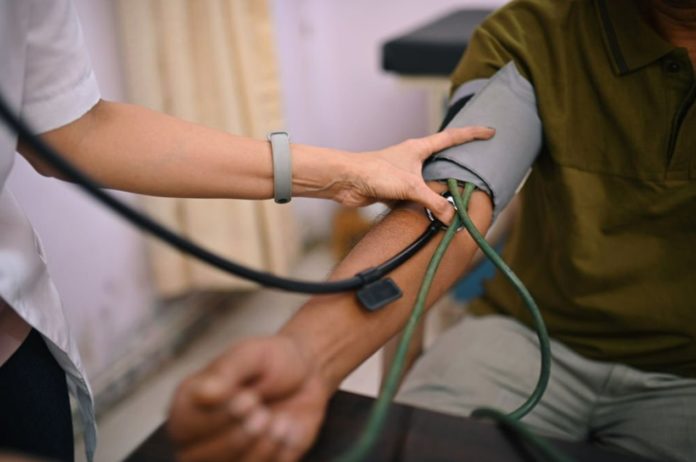High blood pressure, or hypertension, is a major risk factor for heart disease and stroke, two of the most common causes of death in the World.
It’s also one of the most common chronic diseases in the United States, with about half of all adults in the country being classified as hypertensive according to current guidelines.
An estimated 20% of people with high blood pressure have resistant hypertension, which means their blood pressure stays high despite rigorous treatment.
According to recent research, gut bacteria can limit the efficiency of certain blood pressure medications, potentially opening the door to novel strategies to treat treatment-resistant hypertension.
The study, which was published in the journal Hypertension this month, provides the first hints to a long-standing mystery: why don’t certain people respond well to medication?
“The only thing doctors can really do in these patients is adding or switching medications and increasing the dose with the hope they can find something that works,” said Dr. Tao Yang, the study’s first and lead author, is an assistant professor in the Department of Physiology and Pharmacology.
“Until now, we haven’t had any clear indication what the mechanism is for resistant hypertension. Our research could provide a first step toward identifying new ways to effectively overcome treatment-resistant hypertension.”
In recent years, scientists have paid closer attention to the relationship between a person’s blood pressure and the bacteria that live in their gut.
A lot of that work has been done at UToledo, and it has helped find possible causes of high blood pressure that go beyond diet and exercise. Yang’s study, on the other hand, is the first to look at the effect of gut flora on blood pressure medication.
The discovery is an important expansion of UToledo’s work to better understand the causes of hypertension and find novel approaches to treat it, according to Dr. Bina Joe, Distinguished University Professor and chair of the UToledo Department of Physiology and Pharmacology, and the study’s senior author.
The researchers at UToledo evaluated the efficacy of the antihypertensive medication quinapril in rats with normal gut bacteria with those whose gut microbiota had been reduced by high antibiotic doses.
Researchers discovered a clear distinction between the two, with mice given antibiotics first responding to quinapril far better.
Based on an analysis of the animals’ gut bacteria, the bacteria Coprococcus was found to be the cause. In lab tests, it was discovered that Coprococcus comes, a major bacteria species in this genus, can break down quinapril and ramipril, causing the blood-pressure-lowering effects to be weakened.
While the UToledo study was limited to animal models and lab tests, researchers found at least one intriguing case study that supports the idea that the findings could be applied to humans.
In a 2015 study published in the International Journal of Cardiology, a woman with a lengthy history of treatment-resistant hypertension had her blood pressure stabilized without the use of antihypertensive medication during the two weeks she was on antibiotics for post-surgical infection. After quitting antibiotics, her blood pressure was able to be maintained with only one drug for six months before becoming treatment-resistant again.
“This is just one report and more research is needed. However, this suggests that gut bacteria can play a very real and very important role in regulating the efficacy of blood pressure medication,” Yang remarked.
The researchers intend to continue their investigation by looking into the interactions between additional blood pressure drugs and other prevalent gut flora.
Although long-term antibiotic use isn’t a viable strategy for treating treatment-resistant hypertension, Yang believes that changing one’s microbiome through probiotics, prebiotics, and dietary changes should be doable.
“The ultimate goal of my research is to identify ways we can specifically target the bacteria in an individual’s gut to improve drug efficacy,” he explained. “This has the potential to benefit a lot of people.”
Image Credit: Getty
You were reading: High Blood Pressure: Finding New Ways Of Overcoming Resistant Hypertension
